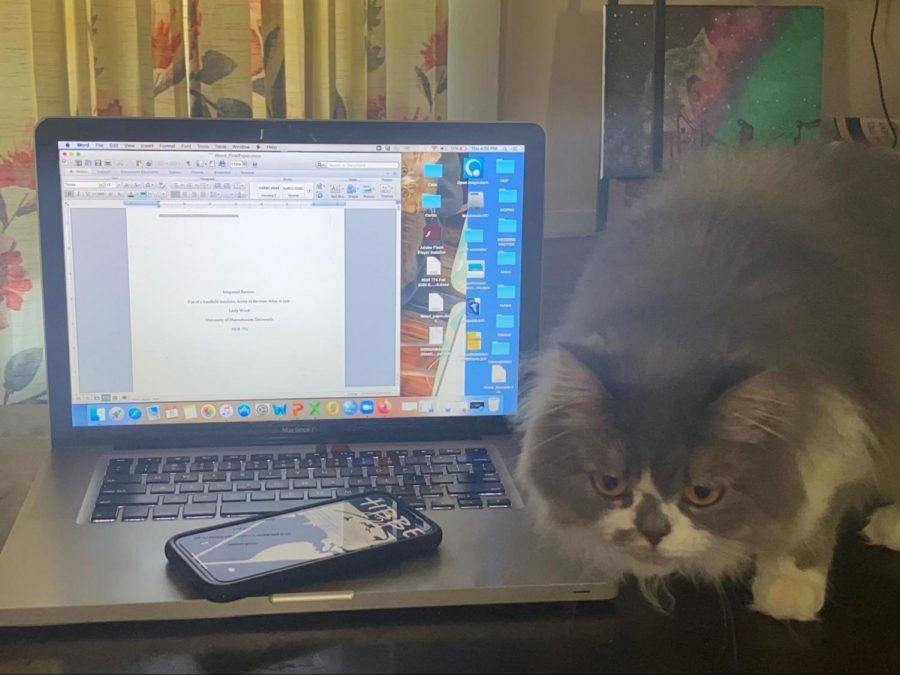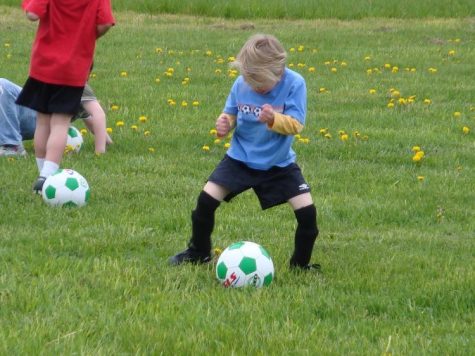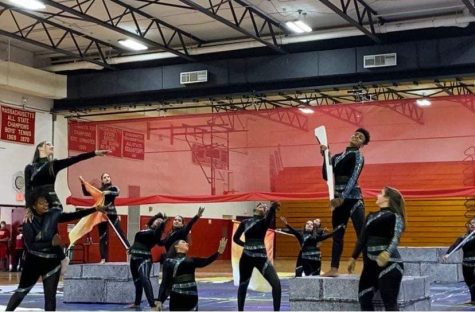Dazed and Confused: Distracted at home during remote learning
This feline monster is just one of the many distractions that DHS students faced during remote learning this fall.
As predicted, the start of the 2020 school year at DHS has brought new challenges. Distractions appear in the homes of many students, where they are expected to be remotely learning. Unlike the classroom settings at DHS, students at home are surrounded with temptations that could eventually affect their academic achievements.
Depending on how each student felt about the start to the school year, September 15 either brought excitement or concern.
Junior Isabella Raposa originally thought online school would be difficult with the different types of ways students learn. “I thought online school would inevitably backfire. Between the distractions at home and the lack of motivation and face to face interaction, students were bound to slack off,” Raposa said.
Junior Juliana Sousa commented on the matter. “I was worried about falling behind in class and being distracted by my family and things around my room,” she said. When comparing the environments of students’ homes, many differences can be noted. Each household may have a number of different distractions, including limited quiet areas to work and multiple family members working from home.
Cell phones, siblings, food, and pets, are just some of many distractions that can cause a student to lose focus. Raposa can be easily distracted by her phone, family, cats, and interests. “I’ve found that when I start getting, for lack of a better term, bored in class, my mind runs through the things I could be doing,” Raposa explained. Like many other students, interacting with pets and siblings are a common distraction that can be found in many homes.
One temptation that many students can’t seem to ignore is their cell phones. The many uses of a cell phone can lure students in and cause them to lose their focus in class. “I’m addicted to my phone [to the point] where it’s unhealthy and I can’t even concentrate in class,” said Sousa.
Sousa says she attends online school in the same house as her younger sibling. “My brother has violin class first period,” said Sousa, “and it is the most annoying thing because I’m trying to concentrate on school and it’s so loud.”
Junior Evan Garcia found the transition to online school better than he originally thought. His most common distraction is connected to the amount of screen time that is attached to remote learning. “My main distraction is that I sometimes get online fatigue because the day blends into itself,” Garcia said.
For other students, their focus isn’t as affected. According to sophomore Giada Cabral, “They don’t affect the quality of my work, just how quickly I do it.”
Not only can home distractions impact a student’s school work, it can also impact their mental health, creating another stressor during the school year. “I’m definitely more stressed with these distractions,” Sousa said, “because I feel like I’m falling behind on my work when I don’t have enough time to do them.” Almost a domino effect, distractions lead to loss of focus, missed information related to classwork, and stress.
In contrast, other students enjoy online school and the flexibility that being in the home setting allows. Cabral finds online school acceptable and appreciates the ability to continue her education online. Cabral said, “I personally like attending classes from the comfort of my own home. I don’t mind online school.” It is difficult to conclude whether or not it is the ideal learning situation for all students. However, there is an equally distinct division between the two opinions.
Although distractions can be a negative factor affecting online school, students are optimistic about the situation and provide some advice for those struggling.
Raposa hopes students can find a balance between giving in to distractions and focusing on school. “A trick of mine is to list everything that we do in the classes on a separate sheet of notes,” said Raposa. This provides something to go back to if a student becomes distracted.
Sousa recommends using headphones or playing music in the background to concentrate. “Talking to your family members, telling them you have to focus on this and putting distractions away,” is Sousa’s advice for students struggling to ignore temptations.
Students should try their best to keep the phones away, take advantage of the time in between classes to take care of pets’ needs, and try to utilize other quieter rooms within your home away from siblings.
The temptation to give into distractions is tough, but recognize this is normal. Students are adapting, discovering new ways to stay focused, and learning the importance of prioritizing their work. Eliminating all distractions may be impossible, but minimizing them will help make focusing on schoolwork possible.















